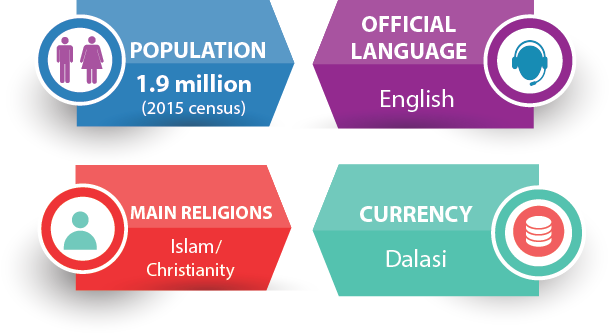The Gambia
The Gambia is a West African State bordering the North Atlantic Ocean on the west and surrounded by Senegal on all three sides. The country is a narrow strip of land on either side of the Gambia River, just 48 km (29 mi) at its widest point. Within the country, the Gambia River is navigable the entire length and it is Gambia's chief transport artery. The smallest country on mainland Africa occupies an area of 11,295 km² and is about the size of one third of Belgium. The Gambia harbors a wealth of land, coastal, marine and wetland habitats and species of local, national, regional and global significance, making it an attractive tourist destination. Due to its unique geographic location, it is also a hub for trade in the region.
> Population: 1.9 million (2015 census)
> Official language: English
> Main religions: Islam / Christianity
> Area: 11,295 sq km (4,361 sq miles)
> Life expectancy: 62.5 years (men), 67.3 years (women) 2016 est.
> Currency: Dalasi
About The Gambia
After 200 years of British colonial rule, The Gambia gained its independence in 1965 and formed a short-lived federation of SeneGambia with Senegal between 1982 and 1989. A military coup in 1994 overthrew the then President Jawara and brought President Yaya Jammeh to power. A 1996 constitution and presidential elections followed by parliamentary balloting in 1997, completed a nominal return to pseudo civilian rule for 22 years. This saw Jammeh rule The Gambia with a firm grip until he was removed via the ballot box in December 2016, with a win for President Adama Barrow.

